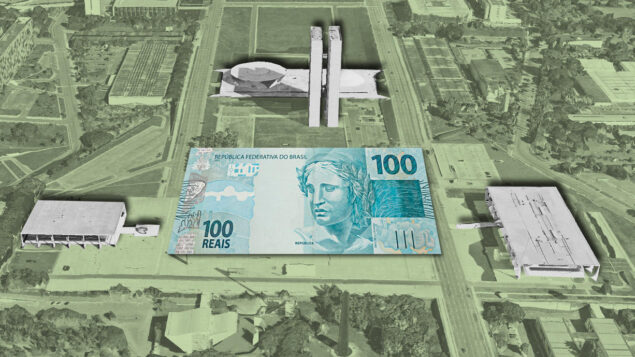Brazil’s Bold Fiscal Move: Insights from Cambridge’s First Brazilian Economics Chair
In a strategic shift reminiscent of significant historical fiscal policies, Brazil has opted for increased government spending. This decision comes amidst heightened demands for additional expenditures, according to Professor Tiago Cavalcanti, recently appointed as the first Brazilian to secure a chair in Economics at the University of Cambridge.
In an exclusive interview with the Brazil Journal, Cavalcanti stressed the importance of restoring trust in Brazil’s fiscal policy. He highlighted the necessity to bolster revenues and reassess expenditures, actions he acknowledges will likely stir responses from various interest groups. Anchoring market expectations is fundamental, Cavalcanti argued, as it could ease currency pressures, aid inflation control, and potentially lower interest rates.
Reflecting on his academic lineage, Cavalcanti’s journey began at the Federal University of Pernambuco in 1995, followed by a master’s and doctorate from the University of Illinois. After a stint at his alma mater, UFPE, he embarked on a distinguished career at Cambridge. There, he has ascended the academic ladder, reaching the prestigious echelons of a university historically synonymous with economic thought leaders such as Alfred Marshall, John Maynard Keynes, and subsequent Nobel laureates like Amartya Sen and Oliver Hart. Cavalcanti’s teachings at Cambridge and part-time tenure at the São Paulo School of Economics of FGV encompass macroeconomics, economic development, and financial systems.
Commenting on Brazil’s economic outlook, Cavalcanti noted the critical influence of international dynamics, positing that a reduction in global interest rates could provide Brazil with the fiscal breathing space needed to lower its own rates. However, he conveyed that current global conditions, especially in key economies like the US and UK, where inflation targets are still grappling with core inflation issues, do not favor such cuts soon.
Cavalcanti drew attention to the notable economic reforms in Brazil during the 1990s and early 2000s, underlining the historical context of growth and inclusion achieved during those periods. Despite Brazil’s potential in sectors like agribusiness and environmental capital, he underscored the critical role of productivity, prompted by educational improvements, in sustaining economic growth.
Addressing internal reforms, Cavalcanti praised a new doctoral study under his guidance that demonstrated significant educational improvements in Rio de Janeiro’s schools using existing local resources. This exemplifies how better management of current assets can enhance outcomes without additional spending.
Turning to financial policies, Cavalcanti acknowledged the Central Bank of Brazil’s effective inflation control and financial stability measures, citing successful reforms such as the Pix system and credit portability. However, he pointed out that Brazil’s banking sector still exhibits extremely high spreads compared to peers like Colombia and Mexico, indicating intrinsic market power issues and financial education gaps among consumers.
Reflecting on political dynamics and communication’s role, Cavalcanti mentioned historical examples such as the instability following UK Prime Minister Liz Truss’s tax policies and the soaring inflation in Turkey post-central bank leadership changes. He emphasized that maintaining well-anchored fiscal expectations is crucial, drawing parallels with challenges faced during the tenure of former Brazilian Central Bank Governor Alexandre Tombini.
Looking forward, Cavalcanti advised that Brazil must navigate its fiscal policies strategically, ensuring coherent political backing for sustainable economic measures. He also indicated an openness to contributing more directly to government initiatives, citing his admiration for Finance Minister Fernando Haddad and hinting at future potential involvement.
“Anchoring expectations—both fiscal and inflationary—through effective communication and coherent policy is paramount,” concluded Cavalcanti. The stakes of such fiscal discipline are high, as demonstrated by historical precedents, pointing towards the need for resolute political and economic leadership.
For the full interview and further insights, visit the original article on the Brazil Journal website.
